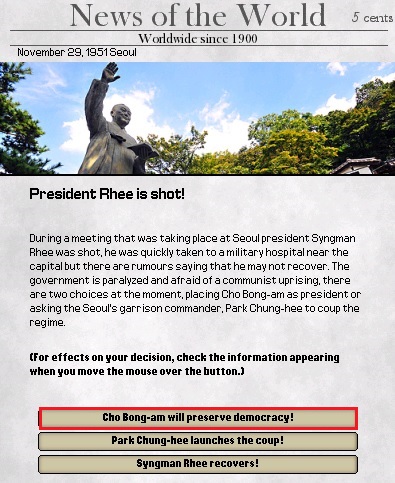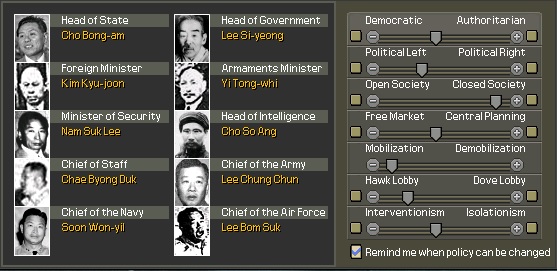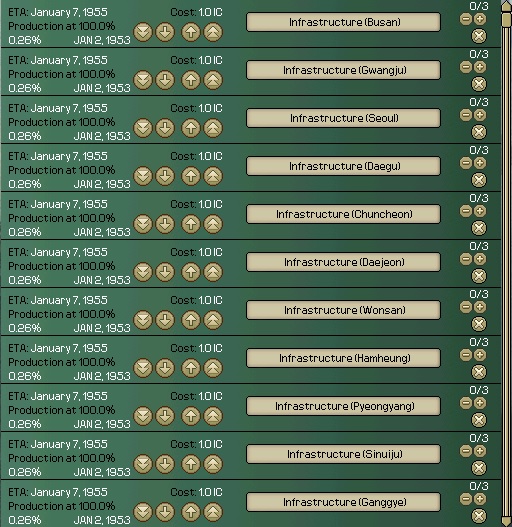Chapter III: Cleaning the House. (Part I)
Chapter III: Cleaning the House. (Part I)
"If I sit silently, I have sinned." - Mohammad Mossadegh, former iranian prime minister.
-----------------------------------------------
Teheran, Imperial State of Iran.~ March 25th, 1952. "If I sit silently, I have sinned." - Mohammad Mossadegh, former iranian prime minister.
-----------------------------------------------
"Farid, I can't believe this, my cousin's father was taken by the british. Their tanker was forced to stop at Yemen, they are trying to stop us with everything they've got. With each passing day I start to believe there's only one solution, we must support the Tudeh Party, they are striving for the same thing we want but they'll get us the allies we need." - Amir said, he started as a pure supporter of Mossadegh, but slowly he began to lean towards the Tudeh Party as he started to view that only through cooperation with the Soviet Union would Iran be able to stop british influence over the country.
The economic situation in Iran was on declining, the sanctions were taking their toll upon Iran's economy. Oil production suddenly turned inefficient too as expertise and maintenance workers left the country. Every shipment that left Iran was taken by the british and there were no countries willing to buy iranian oil.
It was clear that Mossadegh had to do something regarding the crisis with the United Kingdom, dealing with United States was an option however, the Truman administration wasn't supporting any side. They didn't care for british colonial interests while they weren't decided to oppose their allies by supporting Iran.
"Amir, shut up, how can you say that? If someone hears you they'll cut your throat." - Farid wished he could be joking but the previous day he heard a bunch of conservatives saying that Tudeh supporters should be thrown to the northern border or disposed of. - "Amir, I bet the situation will be under control in some months, the Soviet Union is our greatest threat. How did you start to see them as possible allies in our struggle? They want our oil too, that's all."
"I'm not sure about that Farid, they've got Baku for their oil production, they clearly want to be allies of Iran and they are the only option we have to modernize this country while retaining our independence from the Western Devils." - he was gradually turning more radical in his opinion against the West, first he was against the United Kingdom but American unwillingness to support Iran was clearly a reason to hate them as well; at least for people with a radical perspective as him.
-----------------------------------------------
Modern History: Korea. - Wade Barnett.

Fearing a huge communist revolution the National Assembly declared Cho Bong-am (The most important figure in the left) as the new president, they did so thinking that asking Park Chung-hee for a coup would spark the chaos.
Cho Bong-am, the Korean independence activist and politician was also the founding member of the Communist Party of Korea (Which lasted until it was dissolved in 1946) but he also was a prominent figure in leftist-thought in Korea. He studied at Japan and the Soviet Union, eventually after Japan's defeat he left the Communist Party as they practically changed loyalties towards the soviets which was a move heavily opposed by Cho Bong-am. Modern History: Korea. - Wade Barnett.

Fearing a huge communist revolution the National Assembly declared Cho Bong-am (The most important figure in the left) as the new president, they did so thinking that asking Park Chung-hee for a coup would spark the chaos.
He was the Minister of Agriculture during Syngman Rhee's presidency and was a prominent voice of opposition regarding Rhee's land reforms seeing them as limited compared to the work done northwards. However, he tried to avoid criticism of the regime while the Korean War lasted as the heavy campaign against leftist elements was raging the country. Recent released documents from the Korean National Archives reveal that Syngman Rhee thought about purging even those leftists in his government thinking that they were another threat, however, at the insistence of the American Advisors present at the peninsula he decided to let them be.
The year after the Korean War was won was one of the most chaotic ones Korea went through in the XXth Century. Syngman Rhee's authoritarian rule and brutal tactics against his opponents turned several politicians against him (at least in secret, as publicly opposing Rhee was quite dangerous) even right-wing ones. It's interesting to say so, as some of them eventually tried to limit president Cho's reforms, he was capable of creating coalitions against the hostile environment that Rhee's dictatorship plagued the country.
Forming one of the most impressive coalitions in Korean history he was able of uniting right-wing politicians and left-wing ones to fight Rhee's dictatorship. One of the first actions Cho Bong-am took after assuming power was restoring Park Chung-hee as Chief of Staff for the ROK Army. The motives behind his decision are clear, he needed the support of the army and also to appease the american's concern regarding the new leftist government of Korea, in that way he would be able to gain the military's trust and also the american willingness to keep the aid flowing towards the peninsula.

Republic of Korea's government after Cho Bong-am took power but before Park Chung-he was restored to his Chief of Staff position. To the right one can see how were the policies at the moment.
After restoring Park Chung-hee he went after the National Security Act, he rolled back the measures taken by Rhee specially the most controversial one regarding the families of communist sympathizers. Previously only the active communists were hunted but Rhee's measures made it possible for the system to prosecute those related to them, even if they weren't communists. It was a brutal witch-hunt.
Those actions were useful to restore order in Korea, he granted amnesty and decided to finish the general mobilization of the army by December 15th. He gradually achieved the peace that Rhee wasn't able to win.

The End of the General Mobilization brought peace through the peninsula along the forgiveness measures taken by Cho Bong-am and the rolling back of the strongest measures of the NSA. Soldiers were returning to their families and provinces to help in the reconstruction while most of the army was deployed to the northern border.
But his actions and his cooperation with the army helped him to recover the funds destined to the Infrastructure Development Act and the work started in at the end of December. Those projects were meant to strengthen Korea's infrastructure, in order to develop a stronger industry in the future, specially by using the resources at the north.

The measures taken since Rhee's death were highly effective at reducing the anger towards the government. Cho Bong-am was a charismatic politician and he managed to gaint he support from the people easily after rolling back the harshest actions done by Syngman Rhee. It brought a fresh air to the peninsula and that's why the First Republic of Korea is considered the worst of all.
Today, historians agree that Syngman Rhee was an important figure for the shaping of Modern Korea but they disagree on their impact. Right-wing politicians defend him saying that he was a necessary evil over the country in order to guarantee order and peace while leftists claim the opposite, they feel he was an oppresive tyrant interested only in staying at the helm.
The Second Republic of Korea was born on December, close to being one month after Syngman Rhee died by his shot injury. While his legacy remains as something controversial, there's evidence that his government did at least good things too. The Infrastructure Development Act, the National Education Investment Act and the Communication Network Development Act are widely considered to be his greatest achievements along the unification of the peninsula.
However, people tends to forget that Cho Bong-am was the president behind the enactment of the IDA and the CNDA as Rhee was mainly focused on education while corruption stopped the aforementioned acts. (IDA and CNDA)

After a brief struggle to recover the funds, president Cho Bong-am used the foreign aid to start building (and rebuilding) the infrastructure over the country. The main priority was the National Route One. (Connecting Sinuiji in the northern part of the country to Mokpo in the south)
Demobilizing the army helped him to reduce the military spending and that gave him the opportunity to start subsidizing the reconstruction of the country. While he was aware that the whole country needed his help he placed an important focus on the south as it was the main agrarian region and people was starving, aid was coming from United States, United Nations and even from Japan but it wasn't enough to completely stabilize the situation in the south.
Previously, Syngman Rhee chose to support those japanese left or even the former collaborators but Cho Bong-am was totally against it. While he knew that some of the former collaborators would be useful for the country, he was against the idea of helping those "traitors" as he called them. The first step towards his fight against Rhee's supporters was the land reform.
Rhee kept it quite limited and even reversed the one done in the north, that was one of the main reasons for the national outrage, president Cho soon decided to revert Rhee's decision and to also expand the land reform over the south. He knew it was a dangerous move and even expressed: "Today, several supporters of president Rhee will be angry, but those angry aren't the tenth size of those starving by his decisions. Korea has to move ahead, only together we'll be able to succeed."
His Coalition took a blow after the reform, however, it stayed strong as Rhee's supporters started to rally behind the powerless prime minister: Chang Myon. While he wasn't entirely powerless, his influence was getting weaker with the time, prominent figures joined Cho's regime after seeing the stability he was bringing to the country.
Chang Myon championed liberal and democratic values and the felt that Cho Bong-am was very close to communism and he was also worried about Cho's past as a founding member of the Communist Party of Korea. While he agreed on the reforms Cho Bong-am was taking he also felt that he was a potential communist dictator, that's why he accepted the support from Rhee's allies. While some of them weren't interested on Chang Myon's vision, they felt he was actually a moderate figure compared to the "radical" Bong-am.
Some of the right-wing politicians were concerned about it, Chang Myon wasn't their type of candidate but he was also more moderate than Cho Bong-am. However, they thought that Chang's allies were a threat to the nascent Korean Democracy, specially as they were willing to support a ruthless tyrant as Syngman Rhee.
After understanding that, it makes sense why the right-wing politicians chose to stay close to a left-wing president even if there was a moderate option at the table.
Cho Bong-am announced that elections would take place in 1956, it was clear for the conservatives that they had to assemble a strong coalition before the elections came or they would have to choose between Cho Bong-am and Chang Myon.

President Cho's Land Reform was widely praised, it brought numerous benefits to the average citizen of the Republic of Korea. It caused discontent through the conservative groups but it was seen as the best option to stabilize the critic situation on the peninsula.
-----------------------------------------------
Apologies for taking so long, I've been quite busy irl and I'm close to returning to classes so I'll be a bit consumed.
I hope you enjoy the update!
I still have screenshots to make more updates, but Korea's 1953 was pretty deaaad, so I'll probably focus on international affairs by 1953 which is not bad at all as we have:: Iran, Soviet Union and soon I'll start to work on other events mainly regarding: Vietnam and France.
I'm trying my best to keep plausible this AAR and not just turning it into Korea-wank
I don't know when will I post next update but I hope it won't be too long, next events I'm working on will deal with the economic situation and the politics over the peninsula, I'm also thinking about the relationship with the Republic of China and Japan so; expect more things to come!
(NOTE: I barely know about american politics so I decided not to touch USA election events -yet- so we may see some of OTL presidents...)









